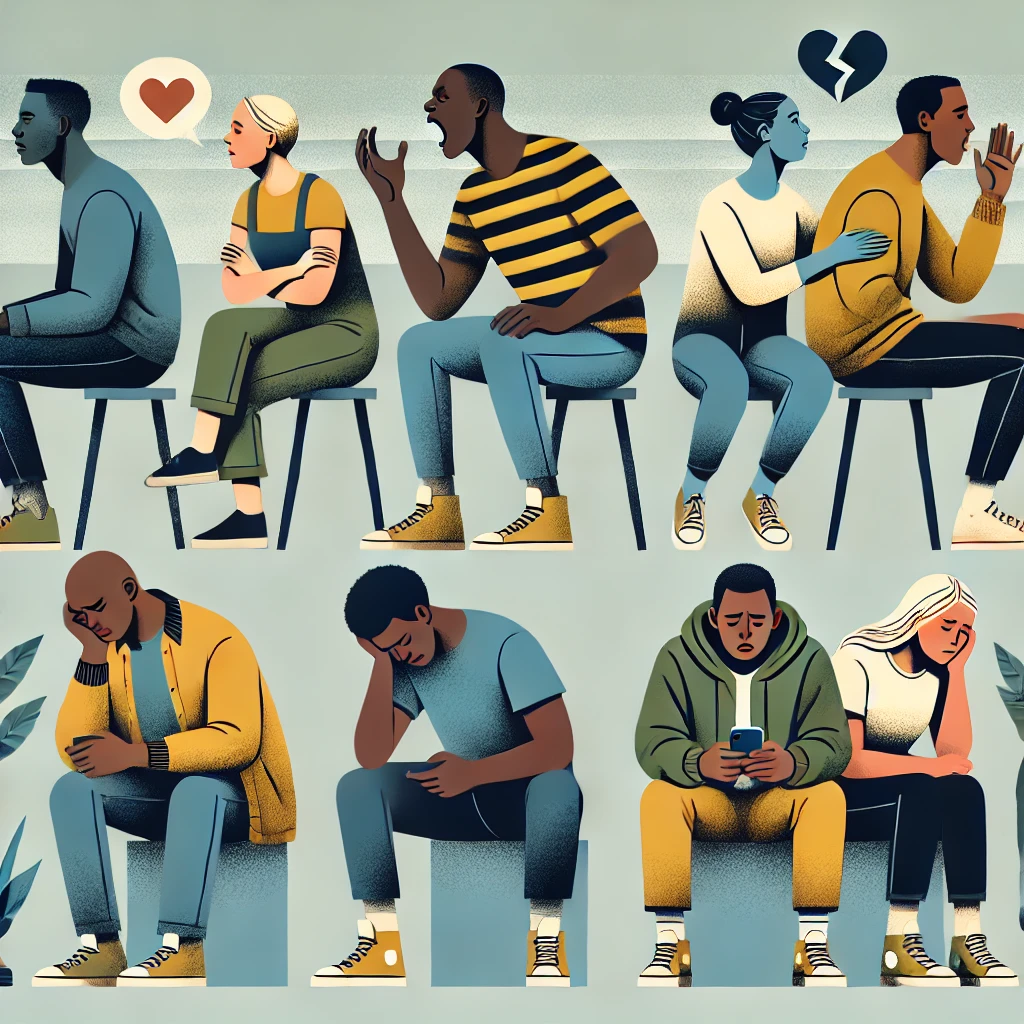Relationships are deep, intimate connections that require trust, communication, and effort from both partners to thrive. Even the best relationships can face challenges, so it’s important to recognize warning signs that may indicate problems.
Toxic behaviors like gaslighting, narcissism, and other subtle patterns can erode trust and happiness. While not all unhealthy relationships are abusive, these patterns can negatively impact your well-being.
Being able to identify signs of toxic and unhealthy relationships can help you take action—whether it’s addressing issues, improving communication, or seeking professional help—to create a healthier, more fulfilling relationship.
5 Signs Your Relationship Is Unhealthy and Toxic
Relationships evolve over time and can shift from healthy to problematic. Unhealthy patterns, like increased tension, conflict, and stress, can affect not only romantic relationships but also those with family, friends, and coworkers.
Deciding whether to break up can be challenging, and recognizing red flags is key. By identifying key signs of dysfunction, couples can either work through issues or recognize when it’s best to end the relationship for good. Some of these are:
1. Lack of Communication
A key sign that a relationship is in trouble is poor communication. This includes avoiding tough conversations, not expressing feelings clearly, or failing to listen. Communication is essential for building trust and understanding.
When partners stop showing interest in each other’s thoughts and feelings, they may “cap” conversations, shutting down connection attempts.
Effective communication is crucial for a healthy relationship, and poor communication is a major predictor of relationship failure, even more than stress or personality differences.
2. Decreased Intimacy
Intimacy, both physical and emotional, is crucial to a healthy relationship. A decline in intimacy—due to stress, emotional distance, or lack of effort—can signal trouble. While all relationships experience ups and downs, a consistent lack of desire or connection may indicate deeper issues.
Open communication about feelings, scheduling time for affection, and finding new ways to connect are essential to reignite intimacy. While not all relationships need frequent physical intimacy, unmet needs or a lack of interest from both partners often point to problems that should be addressed.
3. Constant Fighting
Fights are normal in relationships, but constant fighting signals trouble. Repeated arguments can create anger, frustration, and damage trust and respect between partners.
To address this, it’s crucial to identify the root causes of conflict and resolve issues constructively. Productive conflict resolution leads to growth, while unresolved issues build resentment and weaken the relationship.
Healthy conflict involves understanding and respect, while dysfunctional conflict is marked by criticism and repeated, unproductive arguments. Constant fighting is a red flag that something deeper needs attention.
4. Lack of Trust
Trust is essential in any healthy relationship, and its absence can cause insecurity and anxiety. Trust issues arise from dishonesty, betrayal, or lack of effort, and they can seriously harm a relationship.
To rebuild trust, open communication and transparency are key. Both partners should work to be honest and vulnerable, sharing feelings and fears. Secrecy or evasiveness damages trust, while mutual self-disclosure strengthens emotional intimacy.
Trust is also influenced by attachment styles developed in childhood, which can shape how we handle trust in romantic relationships as adults.
5. Feeling of Unfaithful and Disrespect
Disrespect in relationships can show up as dismissiveness or mocking a partner’s opinions or interests, often leading to feelings of rejection, hurt, shame, and loneliness. Cheating in a monogamous relationship is a major red flag, revealing deeper issues within the individual or the relationship itself.
While fantasizing is normal, persistent thoughts of infidelity or engaging in flirtatious or inappropriate behavior signal trouble. If you’re tempted by others or acting outside your relationship, it’s time to reassess whether the relationship is truly working.
Are You In An Unhealthy Relationship?
Recognizing signs that your relationship is at risk is key to addressing issues and maintaining a strong bond. Whether it’s poor communication, lack of intimacy, constant fighting, or loss of trust, working together to resolve these challenges is essential.
A healthy relationship requires effort, time, and commitment from both partners. It’s important to feel supported, happy, and fulfilled in your relationship. If problems persist, take time to evaluate their impact and whether they can be resolved.
Every relationship has its ups and downs, but you deserve one that contributes positively to your life. For further guidance on strengthening your relationship or finding your soulmate, visit Soulmate Sketch for insights and personalized sketches to help you connect with the right person.






